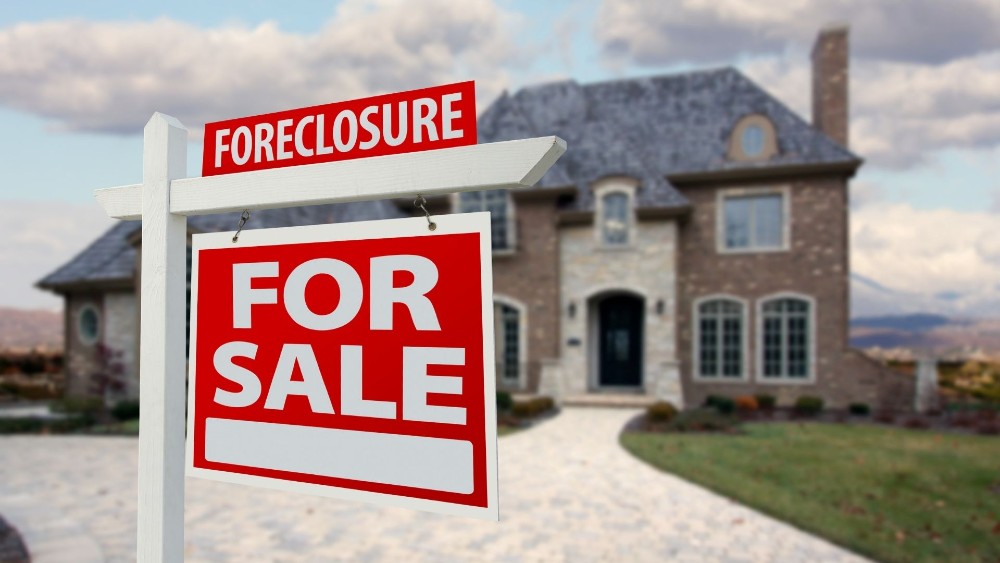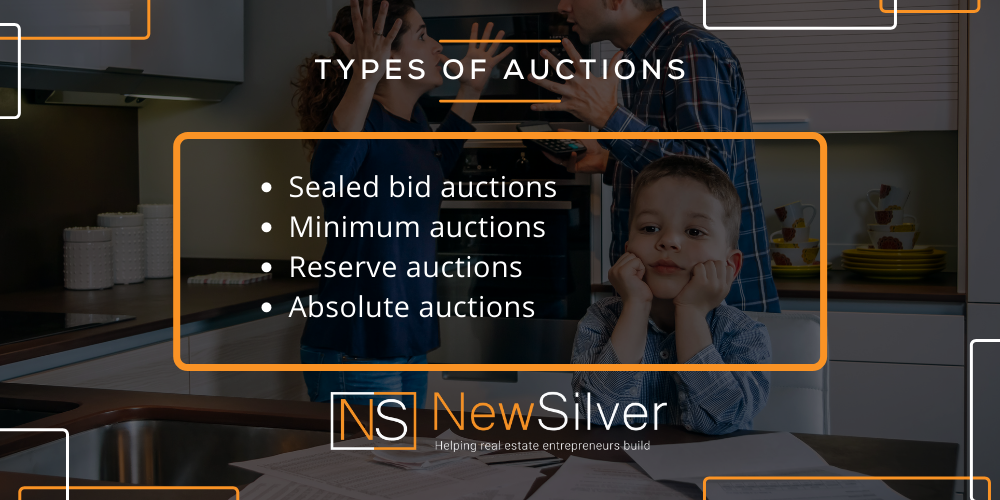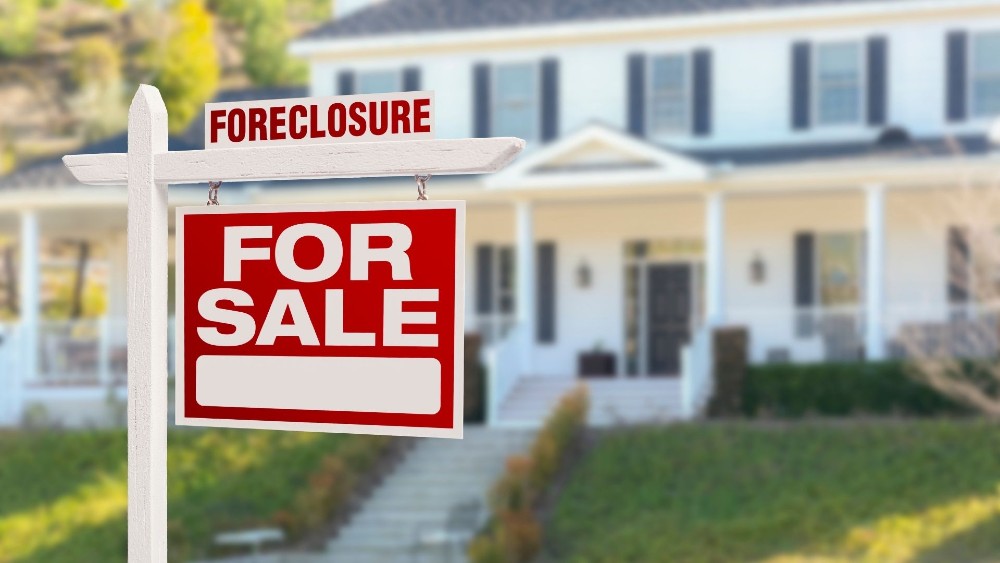A brief rundown
Real estate investors often turn to properties in foreclosure when they’re looking for good deals. While this may come with its own drawbacks, there are some tips and tricks to help you get the winning bid at a foreclosure auction.
Key Topics
One thing that most real estate investors have in common is that they’re often on the lookout for a good investment deal. This means finding a property to buy that has a purchase price below market value, which can be fixed and improved to generate more value. The property can then be sold or rented out for a higher selling price or rental amount than before. There are a few avenues that investors can choose to find these deals, one of them is to look at homes in foreclosure.
Typically, homes in foreclosure are in that situation because the owners can no longer afford to pay their mortgage. Which means that the home has either been repossessed by the lender or the bank and is being auctioned off, or it is being sold as a pre-foreclosure or short sale by the owners to avoid going into foreclosure. Either way, buying a house that is in foreclosure provides an opportunity for buyers who are looking for a good deal.
Having said that, bidding on a foreclosed home needs to be done right, or you could face losing the home to another buyer as foreclosures usually attract some stiff competition. Let’s take a look at how to win a foreclosure bid with a few useful tips and tricks.
How to bid on a foreclosure

1. Do the legwork
Before you go to the auction, you’ll need to pick a property and then do your research so that you know how much you’re willing to bid on it. Check out other homes in the neighborhood that are similar, to see what their price points are. Take a look at real estate websites to see what other homes in the area are listed at too. It’s important to get your maximum bid figured out ahead of time, but this also needs to be a fair number. Don’t forget to factor in any improvements you may need to do.
2. Get your finances ready
Once you’ve settled on a foreclosure property and decided how much you’re willing to pay for it, the first step is to get pre-approval from a lender for the price that you’ve settled on. Unless you can pay cash for the property, which would be first prize. Otherwise, secure your finances and get a pre-approval or proof of funds letter to take with you to the foreclosure auction.
3. Attend the auction
You should arrive on time or early because auctions are notoriously fast-paced and if you’re just a few minutes late you could miss it. Make sure you listen to the auctioneer, they will give you any information you may need to know beforehand, such as the winner being responsible for any liens on the property. Now it’s time to make your bid and be prepared to counter against many other bids. Typically, the bid that wins the auction is the one that is the closest to the value of the home.
How to win a foreclosure bid
1. Know the rules
The key to winning any foreclosure bid is to know the rules of the particular auction and the state’s laws. Each state has different laws and rules around auctions, so brush up on these beforehand so that you know exactly what you can and can’t do. Make sure that you’re also familiar with the rules of each auction, for example some properties are sold as is, in a foreclosure auction. Each auctioneer has a different set of rules so look out for things like the deposit fee, payment timing and auctioneer’s fee because these can change from auction to auction.
2. Do the research
Sign up for email alerts on auctioneer websites so that you’re informed as soon as a property is going up for auction. Time is of the essence with foreclosure auctions, so it’s vital to find out about auctions early.
Once you’ve chosen a property, do thorough research on it before the auction so that you can determine a fair price to bid. Your research should include:
- A title search – to find out if there are any mortgages or liens on the property
- A visual search – while you probably won’t be able to see the inside, you can still take a look at the exterior of the home to determine its condition
- Comparable homes search – find out the prices of similar homes in the area to get an understanding of what the home’s fair market value would be
- Recent sales search – check out other properties in the area that are listed online, to see what price they’re selling for

3. Figure out your budget
Make sure that you’ve got your bucks ready and waiting and settle on a maximum price that you’re willing to pay for the property. Remember that this budget will need to account for any repairs and renovations that need to be done.
Bear in mind, there are different types of auctions. A minimum bid auction is when the opening bid is the minimum price that the home can sell for because that’s what is owed on the mortgage. An absolute auction, on the other hand, has an opening bid that is lower, to attract more people to begin bidding.
4. Bid like a pro
If you want to make sure you win a foreclosure bid, you’ll need to have a strategy.
- Register early and pay your deposit as soon as possible to secure your place in the auction
- Don’t let your emotions get the better of you, start low and stick to your plan and your budget
- Dress for success, show up in professional clothing to make sure you look like a serious buyer
- Timing is key, so don’t make the first bid, instead wait until some bidders are dropping out and then make your bid
5. Bring cash
Bring cash or a cashier’s check to the auction to secure the down payment, and make sure that the rest of the finance for the property is lined up ahead of time. Auctioneers need to know that you’re serious about the sale and so they’ll often require the down payment or sometimes even the full amount in cash, before you can leave the auction. To secure the deal, you’ll need to comply with this and either bring all cash or give enough cash for the down payment and have the rest of the money lined up with a lender and your proof of funds letter.
How to find foreclosure auctions
Finding foreclosed homes was once a tough task, but now finding a foreclosure is easier than it’s ever been. Here are a few places to find them:
- Auctioneer’s websites: these are the easiest place to look, all you have to do is jump online
- Newspapers: auctions for the city or county are published in the legal notices section, or in separate foreclosure listings publications
- Real estate brokers: they may know of some upcoming auctions
- Real estate lawyers: they could have the inside scoop about any auctions that are happening
Final foreclosure auction tips

- Negotiation: You’re dealing with a bank, more often than not, at these auctions, so be willing to negotiate.
- Cash is king: A cash offer is always more enticing for auctioneers or banks than one that involves a lender.
- Bid deposit: This is usually between 5% and 10% of the expected final bid amount, and you can use credit card, cash or cashiers checks for this.
- Auction types: Get to know all the auction types so you know what to expect. There are sealed bid auctions, minimum auctions, reserve auctions and absolute auctions.
FAQ
A maximum bid is the highest amount someone is willing to pay on a property at an auction. The plaintiff’s maximum bid is simply the maximum amount that they’re willing to bid for the property.
If you’re buying a foreclosed home at an auction, you may not get to do an inspection beforehand. However, if you buy the home in pre-foreclosure or in a short sale, then you can do a home inspection before you seal the deal.
After the auction there is a 10 day “upset period” where the property can still be bid on if there’s a higher bid (at least 5% higher), or if bankruptcy takes place. So, if your bid won the auction, you’ll need to wait out the 10 days before you can begin taking ownership of the property. Once you’ve finalized your financing, signed the paperwork and gotten the keys, you’ve finally closed on the property.
Final thoughts
Foreclosed homes can wind up being great deals, but it’s a risky strategy to bid on these as nothing is guaranteed. The extra costs can end up being more than you had anticipated and there are quite a few variables when it comes to buying a foreclosure home. The buying process is often slower than a regular sale, so you should be aware of all the pitfalls before you consider going down this route. That being said, if it’s done right, a foreclosure can be a great option for real estate investors to renovate and make a profit from.

